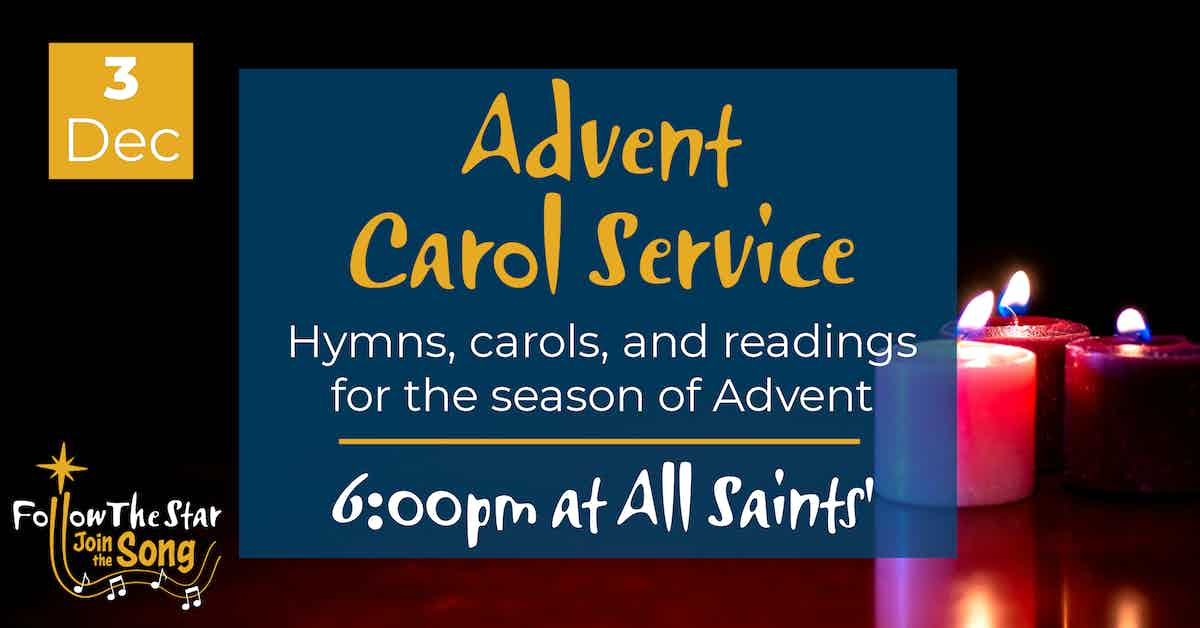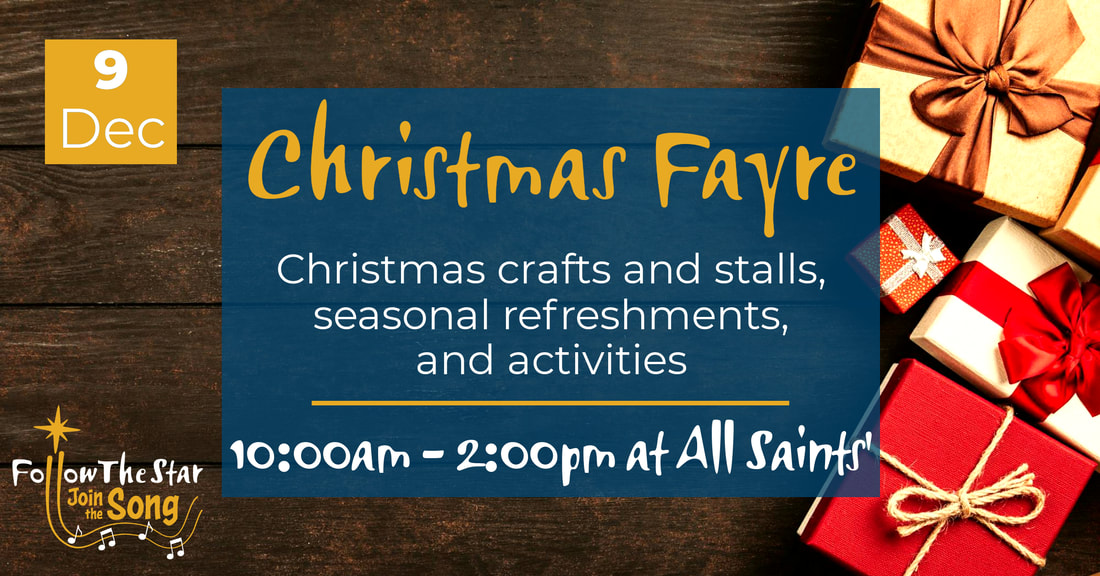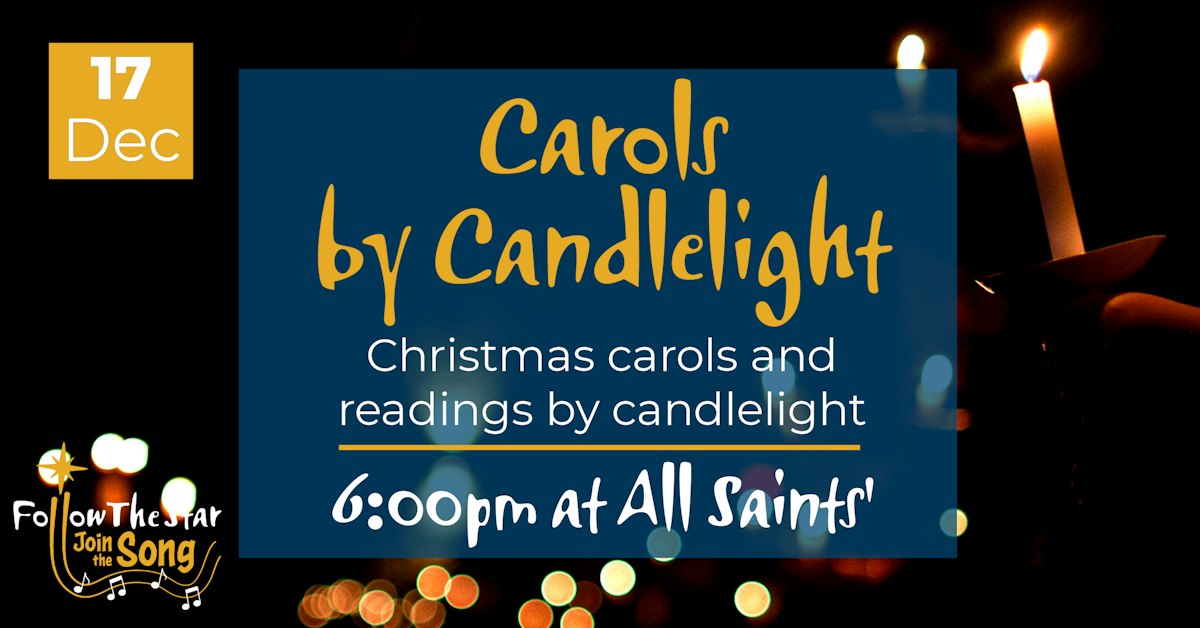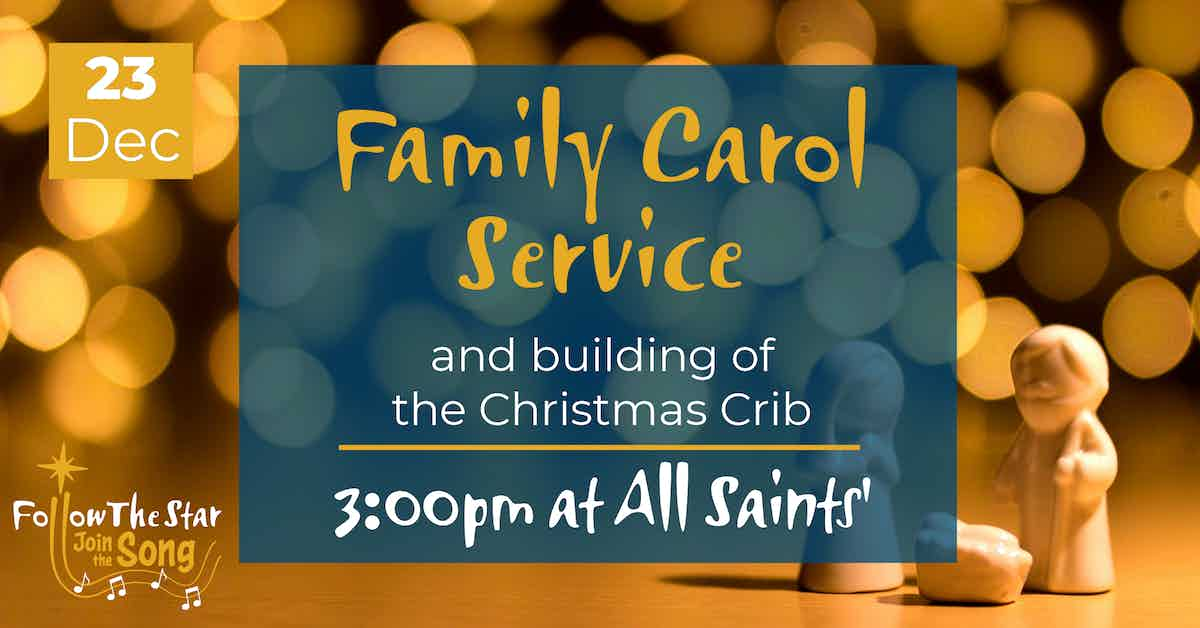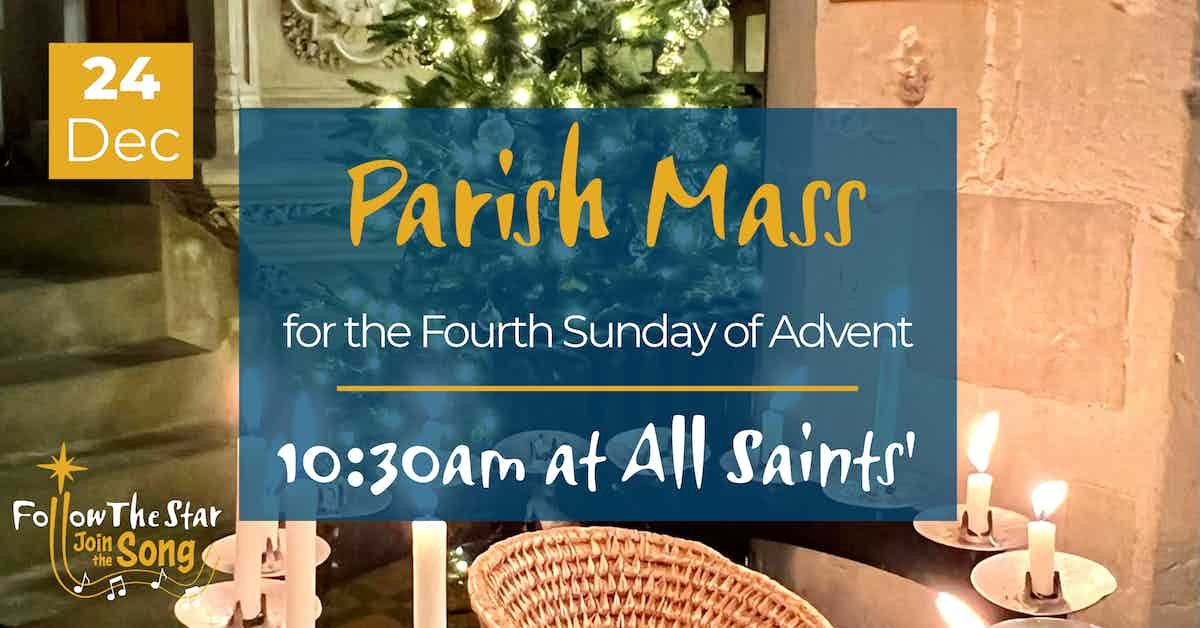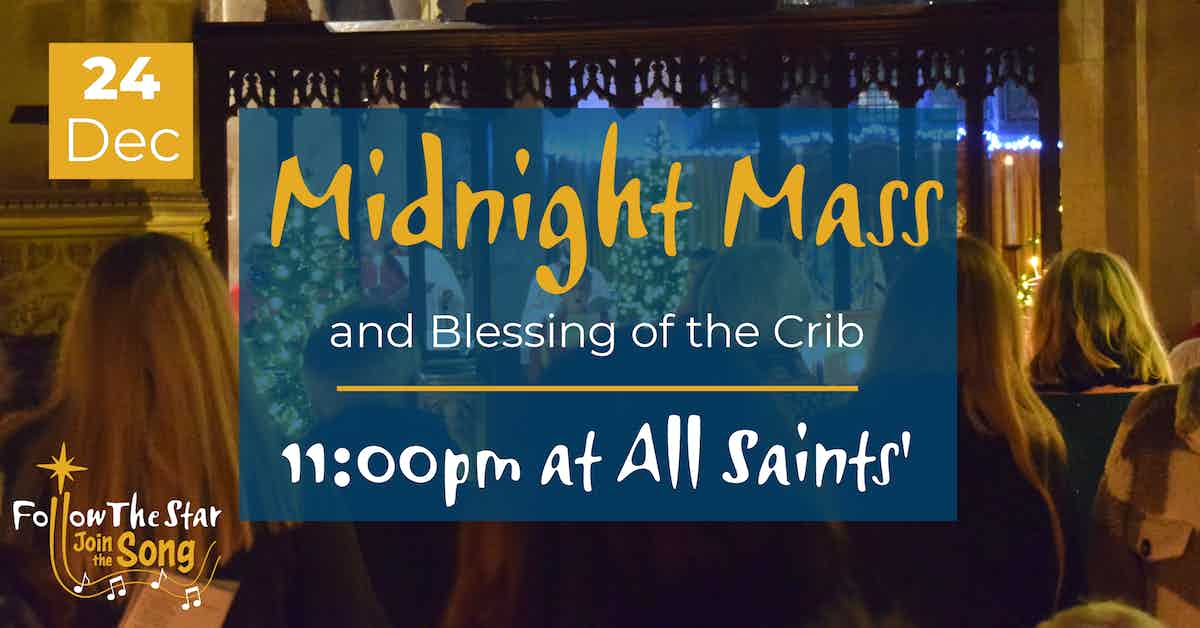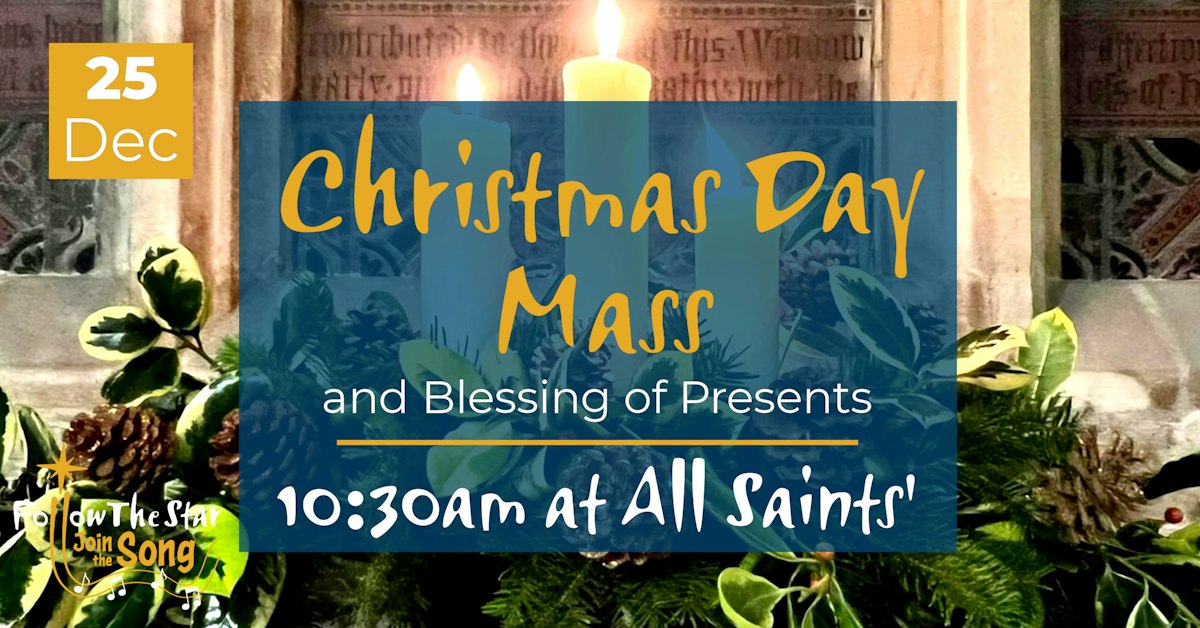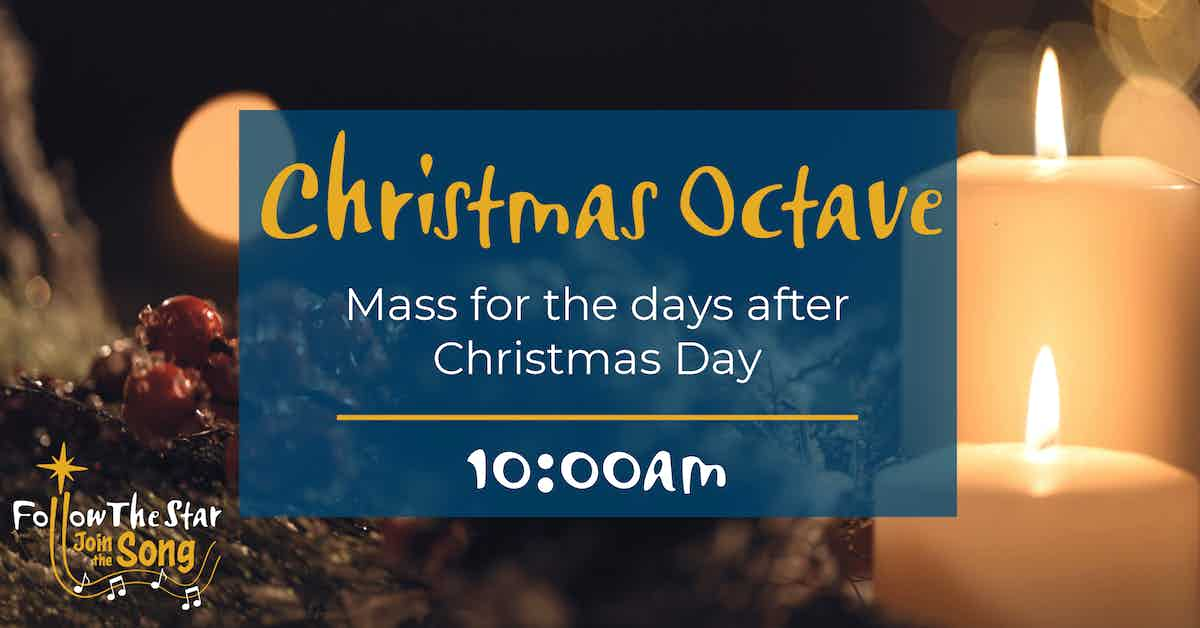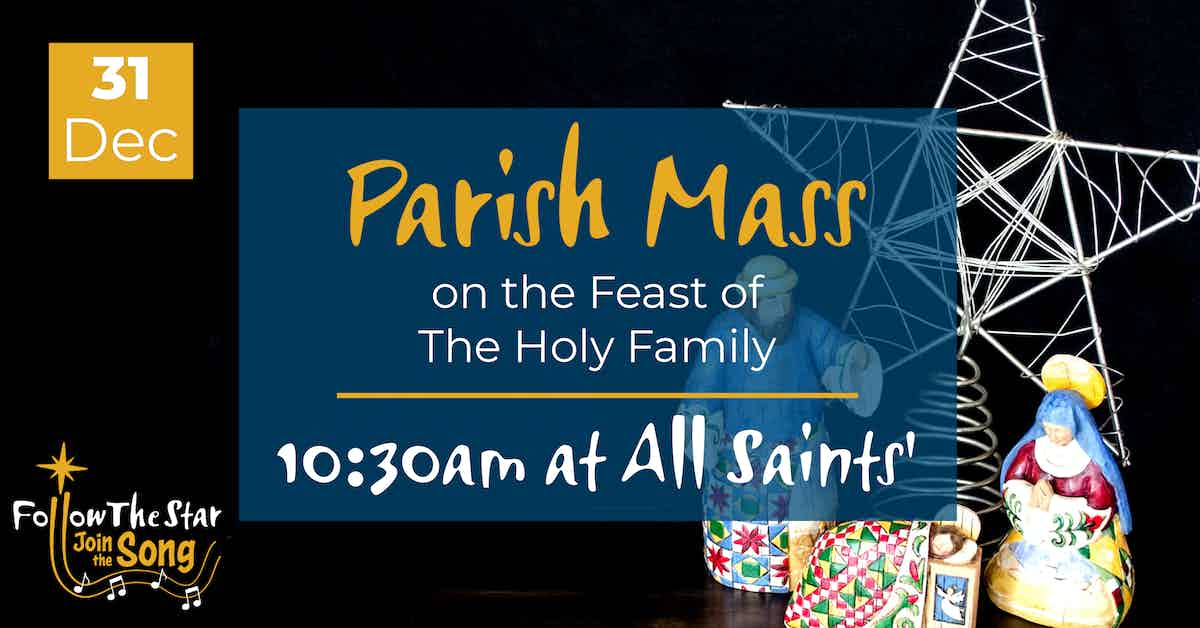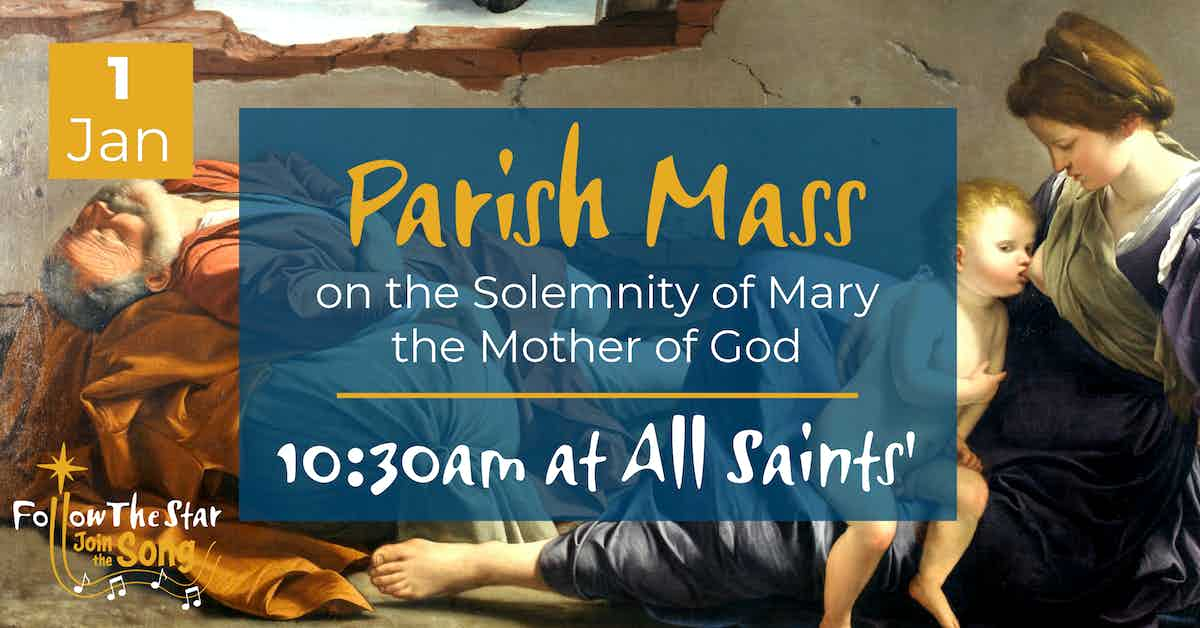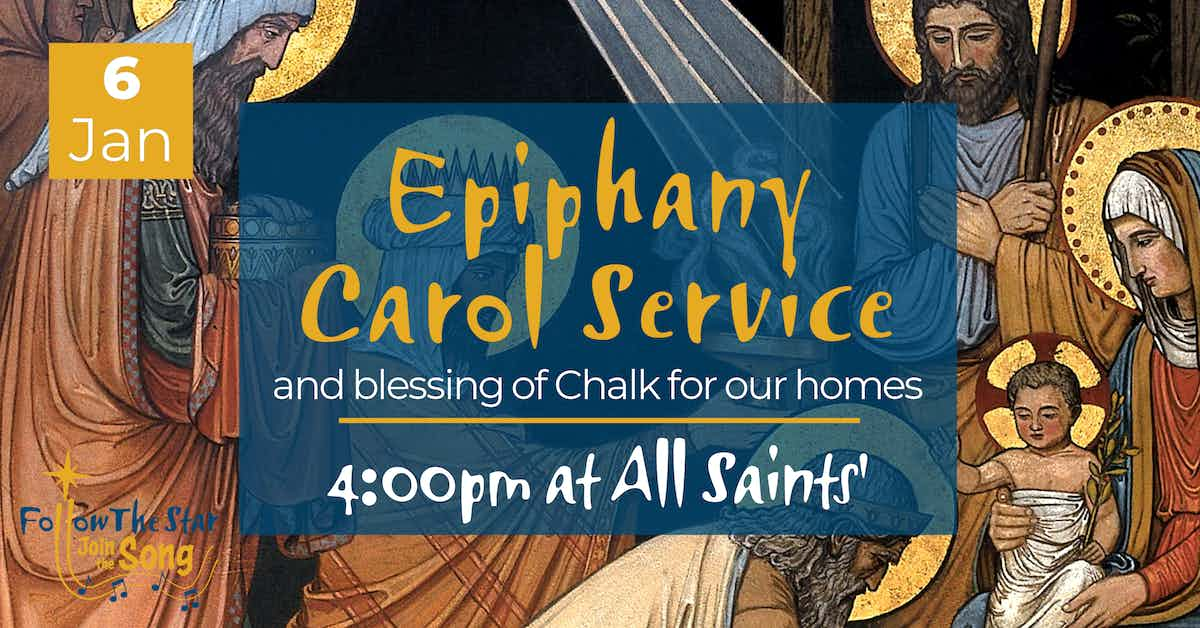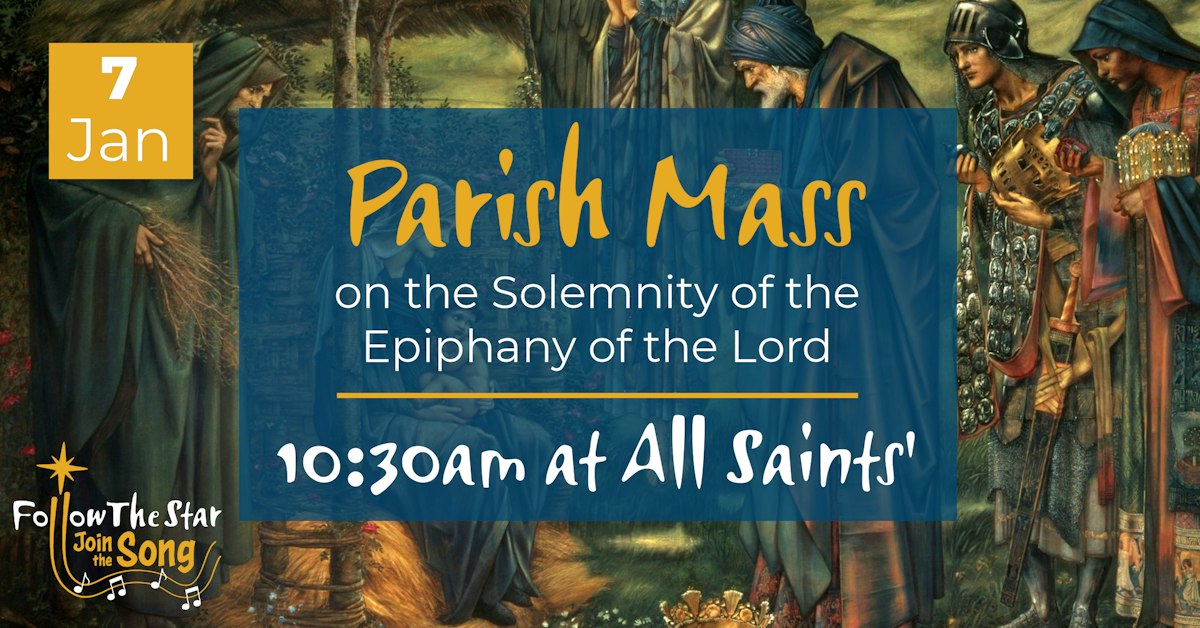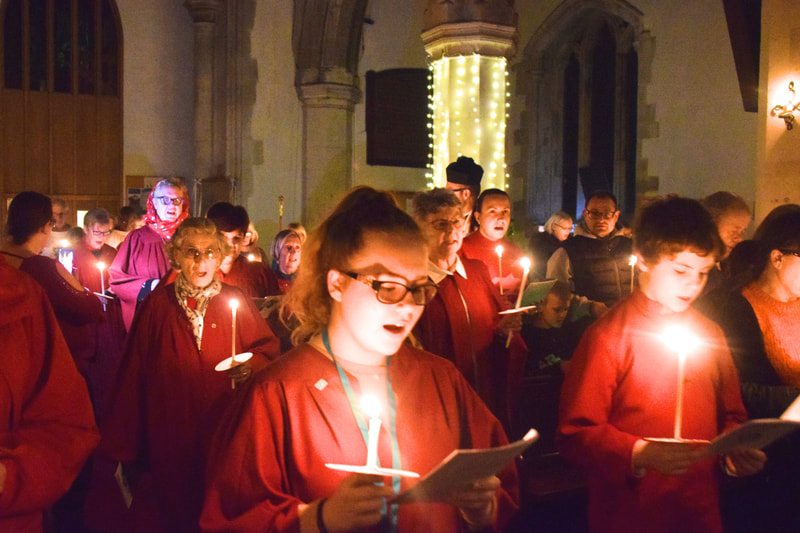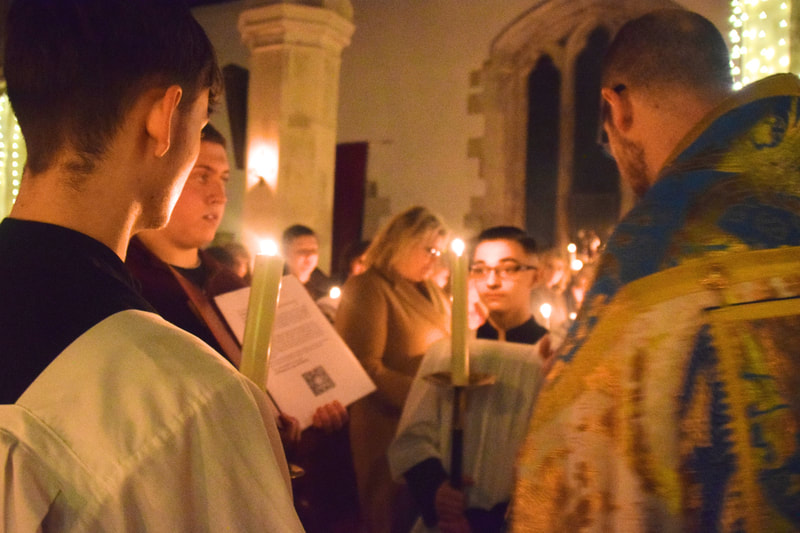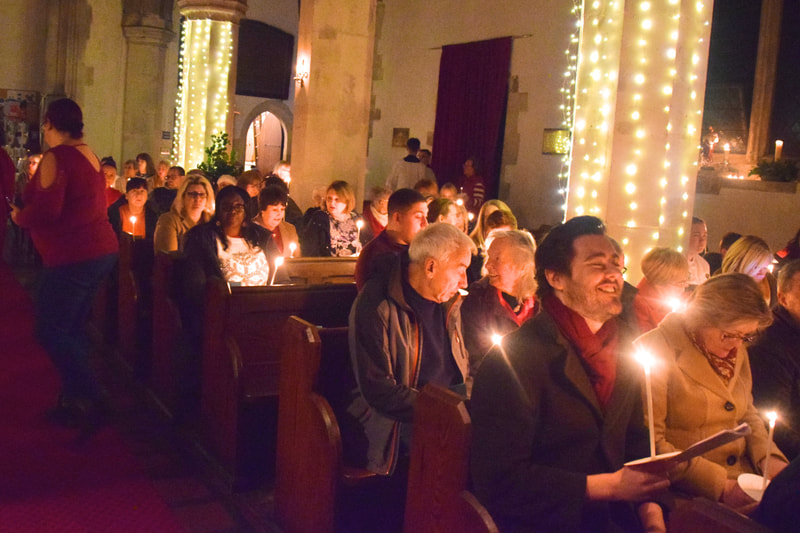Advent and Christmas 2023
2 December
The Town Mayor's Carol Service
5:00pm at All Saints'
This services is followed by the switching on of the town's Christmas lights and the Blessing of the Christmas Tree in Bedford Square at 6:00pm.
5:00pm at All Saints'
This services is followed by the switching on of the town's Christmas lights and the Blessing of the Christmas Tree in Bedford Square at 6:00pm.
12 December
Houghton Regis Primary School Christmas Concert
1:45pm at All Saints'
Christmas carols, songs, and cheer from the pupils of Houghton Regis Primary School.
1:45pm at All Saints'
Christmas carols, songs, and cheer from the pupils of Houghton Regis Primary School.
19 December
Thomas Whitehead Academy School Mass
9:00am at All Saints'
School celebration of the Eucharist with carol-singing in anticipation of Christmas and the end of term.
9:00am at All Saints'
School celebration of the Eucharist with carol-singing in anticipation of Christmas and the end of term.
20 December
Thomas Whitehead Academy Service of 9 Lessons and Carols
11:00am at All Saints'
School Christmas celebration with a traditional service Lessons and Carols. This service is open to families of the pupils.
11:00am at All Saints'
School Christmas celebration with a traditional service Lessons and Carols. This service is open to families of the pupils.
7 January 2022 - Epiphany of the Lord
The Epiphany is transferred to Sunday 7 January from Saturday 6 January.
Said Sunday Mass
8:30am at St Thomas'
Early service of Holy Communion.
8:30am at St Thomas'
Early service of Holy Communion.
About the Seasons of Advent and Christmas
Advent
This is a season of expectation, as the Church prepares for fours Sundays to celebrate the coming (Latin “adventus”) of Christ in his incarnation, and also looks ahead to his final advent as judge at the end of time. The readings, hymns, and liturgies not only direct us towards the celebration of Christ’s birth, but they also challenge our reluctance to confront the theme of divine judgement:
Lo! He comes with clouds descending,
Once for favoured sinners slain;
Thousand thousand saints attending
Swell the triumph of His train:
Alleluia! Alleluia! Alleluia!
God appears on earth to reign.
- Charles Wesley
The characteristic note of Advent is therefore expectation. The anticipation of Christmas under commercial pressure has also made it harder to sustain the appropriate sense of alert watchfulness, but the fundamental Advent prayer remains ‘Maranatha’ – ‘Our Lord, come’ (1 Corinthians 16.22). Church decorations are simple and spare, no flowers are used, and purple is the traditional liturgical colour. The Third Sunday of Advent (Gaudete or ‘Rose Sunday’) has been observed since medieval times with a splash of colour in the restrained atmosphere of Advent. The lighting of candles on the Advent Wreath, at Christingle services, and during “Carols by Candlelight” helps to focus on the coming of Jesus as the light of the World.
This is a season of expectation, as the Church prepares for fours Sundays to celebrate the coming (Latin “adventus”) of Christ in his incarnation, and also looks ahead to his final advent as judge at the end of time. The readings, hymns, and liturgies not only direct us towards the celebration of Christ’s birth, but they also challenge our reluctance to confront the theme of divine judgement:
Lo! He comes with clouds descending,
Once for favoured sinners slain;
Thousand thousand saints attending
Swell the triumph of His train:
Alleluia! Alleluia! Alleluia!
God appears on earth to reign.
- Charles Wesley
The characteristic note of Advent is therefore expectation. The anticipation of Christmas under commercial pressure has also made it harder to sustain the appropriate sense of alert watchfulness, but the fundamental Advent prayer remains ‘Maranatha’ – ‘Our Lord, come’ (1 Corinthians 16.22). Church decorations are simple and spare, no flowers are used, and purple is the traditional liturgical colour. The Third Sunday of Advent (Gaudete or ‘Rose Sunday’) has been observed since medieval times with a splash of colour in the restrained atmosphere of Advent. The lighting of candles on the Advent Wreath, at Christingle services, and during “Carols by Candlelight” helps to focus on the coming of Jesus as the light of the World.
Christmas
The celebration of Christ’s incarnation at Christmas is one of the two poles of the Christian year. The wonderful mystery of God’s dwelling among us in the fullness of humanity, as Emmanuel (God-with-us), foretold by the prophets and born of the Blessed Virgin Mary, provides the material of the feast:
Salvation’s author, call to mind
How, taking form of humankind,
Born of a virgin undefiled,
Thou in man’s flesh becam’st a child.
- tr. J.M Neale
Christmas is much more then than just a joyful celebration of Jesus’ birth. The Christmas liturgy recalls us to the central truth of the Word made flesh for our salvation.
In the Church this holy season of Christmas is celebrated for twelve days (“The Twelve Days of Christmas”), beginning to count from 25 December and ending with the Feast of the Epiphany on 6 January.
The celebration of Christ’s incarnation at Christmas is one of the two poles of the Christian year. The wonderful mystery of God’s dwelling among us in the fullness of humanity, as Emmanuel (God-with-us), foretold by the prophets and born of the Blessed Virgin Mary, provides the material of the feast:
Salvation’s author, call to mind
How, taking form of humankind,
Born of a virgin undefiled,
Thou in man’s flesh becam’st a child.
- tr. J.M Neale
Christmas is much more then than just a joyful celebration of Jesus’ birth. The Christmas liturgy recalls us to the central truth of the Word made flesh for our salvation.
In the Church this holy season of Christmas is celebrated for twelve days (“The Twelve Days of Christmas”), beginning to count from 25 December and ending with the Feast of the Epiphany on 6 January.
